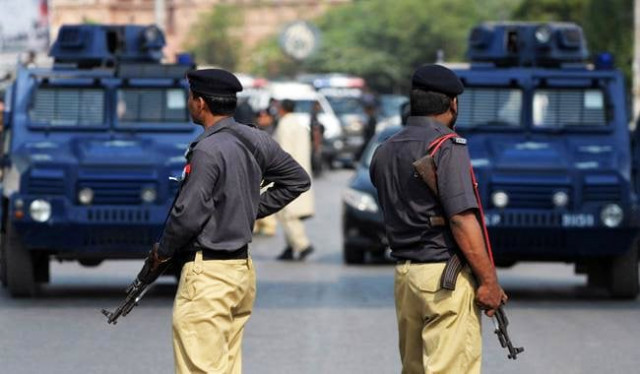Good cop bad cop on police reform talk
The reform plan comes with a mix of good and bad news for the police force

Sindh police PHOTO: FILE
The Pakistan Tehreek-e-Insaf government is determined to push for an overhaul of the police system, which has proven to be a controversial issue for most regimes before it.
The proposed plan, which has received the prime minister’s blessings, allows the home departments to take the reins of the police force in Punjab, Khyber Pakhtunkhwa, and Islamabad.
Once implemented, the police would function under the deputy commissioners, who will have special judicial powers of 22A and 22B.
What will change?
In its bid to revamp the primary law enforcement system, the government plans to address a long list of issues that have tarnished its reputation. The reform package is designed to simplify the system of internal and external accountability. It will introduce more transparent ways to tackle internal maladministration and highhandedness. Financial autonomy and improvement in performance and service delivery are also on the cards. The ultimate goal behind the move is to simplify the centuries-old system for the citizens.
Police to establish health centres, counters for public
The reform plan comes with a mix of good and bad news for the police force. Station house officers would have more powers over the financial affairs of the police station.

To address the issue of police misconduct that has irked the public, the government has proposed the formation of the Police Complaints Authority. The body will comprise individuals who have legal, and administrative knowledge to look into cases of police misconduct.
The government plans to establish the body at the provincial level with regional representation.
According to the documents available with The Express Tribune, the Police Complaints Authority will be an autonomous body with the powers to conduct direct inquiries in case of death and serious injury due to police brutality.
Under the new standards for investigations, police will have to complete the inquiry process within 60 to 90 days. The use of technology in all areas of police and criminal justice will be made mandatory. In addition, the forensic agency will be made effective at the provincial level to help officers during the investigations.
As per the plan, qualified civilian officers will be recruited alongside police officers to improve the efficiency of the law enforcement body.
Police officials ordered to clear utility dues
For promotions, an internal board of senior officers will review the candidates based on performance and then share their assessment with the Inspector General of Police, who will then send to the chief minister for approval. The forthcoming reforms will provide transparency to the police force, which is known for its lack of accountability.
Resistance
The new regime and its oversight seem to have irked many in the Punjab Police department. Incensed by the idea of being subjugated, several high ranking police officers, reportedly, were ready to give up their jobs.
Reacting to the idea of reforms, officers stated they would leave their positions rather than serving under the bureaucracy.
Criticizing the reform plan, former IG Punjab Zulfiqar Cheema said it resembles antiquated colonial rules that were crafted to control the police force. Cheema said the reforms place politicians and bureaucrats in a position to use the police force to their advantage.
“Police reforms are needed but putting the police under bureaucratic control is not the solution,” the former official added.
Published in The Express Tribune, October 2nd, 2019.



















COMMENTS
Comments are moderated and generally will be posted if they are on-topic and not abusive.
For more information, please see our Comments FAQ